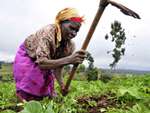Ghana's socio-economic transformation and the imperative for equitable and inclusive development
Published on Fri, 2016-10-14 19:41
Current debates in Ghana about sustainable development express a confluence of four important trends: 1) questioning of the growing inequalities and exclusion wrought by the dominant neoliberal economic policies and the quality of growth that has resulted; 2) recognition of the advances that the 2030 Agenda for Sustainable Development and its 17 Sustainable Goals (SDGs) represent on the minimal ambitions of the Millennium Development Goals (MDGs); 3) African recognition of the limits of raw material commodity export dependence and the need for structural economic transformation; and 4) the rediscovery of development planning as an important tool and policy framework. Ghana’s National Development Planning Commission is currently leading a process to develop a 40 Year Long Term Development Plan (2018-2057). Central to the Plan is the structural economic and social transformation of Ghana, ending at the time of the centenary of Independence from British colonial rule. Goals 1 and 2 of the Plan aim at the creation of an inclusive and equitable economy and society. The concern of the 40 Year Plan for inclusive and equitable structural transformation reflects how in recent years this issue has returned to the top of the African development agenda. The African Union’s Vision 2063 gives it centrality as does the Africa Mining Vision adopted in 2009. Vision 2063 and the 2030 Agenda for Sustainable Development, with its advances on the minimalist ambitions of the MDGs, are explicitly cited as influences on the 40 Year Plan. The revival of interest in a subject which dominated development thinking and policy in the immediate postcolonial period is a welcome turn away from the prevalent intense focus on growth. It is also a recognition that while growth is vital the nature and drivers of growth are important for its sustainability, development value and the equitable distribution of its outcomes. Source: Ghana National Report, Social Watch Report 2016. » |
SUSCRIBE TO OUR NEWSLETTER



